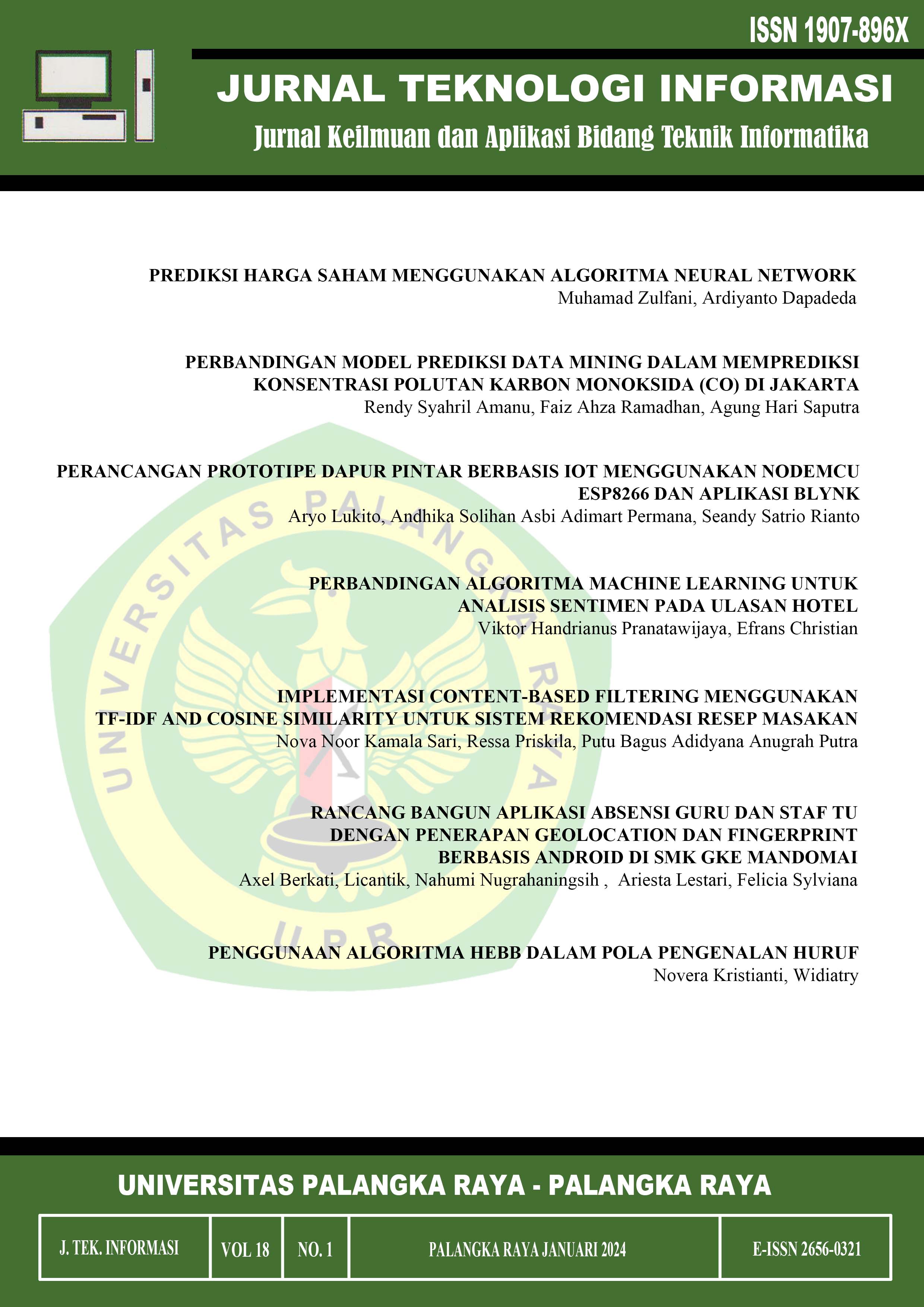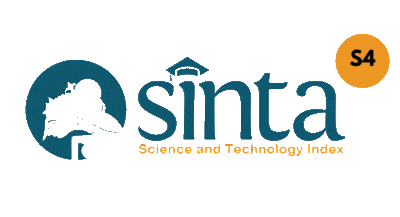PERBANDINGAN ALGORITMA MACHINE LEARNING UNTUK ANALISIS SENTIMEN PADA ULASAN HOTEL
DOI:
https://doi.org/10.47111/jti.v18i1.12581Keywords:
Machine Learning, Gradient Boosting, Support Vector Machine (SVM), K-Nearest Neighbor (KNN)Abstract
The paper extensively explores machine learning algorithms for evaluating sentiments in hotel reviews, particularly within the tourism and hospitality industry. It underscores the importance of precise reviews in utilizing artificial intelligence for improved operational efficiency, revenue optimization, and heightened customer satisfaction. Notably, supervised machine learning algorithms like Gradient Boosting, Support Vector Machine, and K-Nearest Neighbor are highlighted for offering recommendations based on reviews to predict user preferences. The research methodology involves data scraping, cleaning, preprocessing, and labeling, followed by training and testing the chosen machine learning algorithms. Results indicate that the Support Vector Machine algorithm demonstrated superior performance with accuracy 0.8553, precision 0.8433, recall 0.8553, dan F1-score 0.8424, suggesting its appropriateness for sentiment analysis in hotel reviews. The paper concludes by recommending the implementation of the Support Vector Machine model for sentiment analysis in hotel reviews in Palangka Raya, Indonesia, and proposes avenues for further industry development and enhancement.
Downloads
References
Lim KH, Chan J, Karunasekera S, Leckie C. Tour recommendation and trip planning using location-based social media: a survey. Knowl Inf Syst. 2019 Sep 1;60(3):1247–75.
Krishnan K. Travel and tourism industry applications and usage. In: Building Big Data Applications. Elsevier; 2020. p. 145–55.
Baizal ZKA, Tarwidi D, Adiwijaya, Wijaya B. Tourism Destination Recommendation Using Ontology-based Conversational Recommender System. International Journal of Computing and Digital Systems. 2021;10(1):829–38.
Al-Ghobari M, Muneer A, Fati SM. Location-aware personalized traveler recommender system (lapta) using collaborative filtering knn. Computers, Materials and Continua. 2021;69(2):1553–70.
Chidambarathanu K, Shunmuganathan KL. Predicting user preferences on changing trends and innovations using SVM based sentiment analysis. Cluster Comput. 2019 Sep 1;22:11877–81.
Lin X, Zhang X, Xu X. Efficient Classification of Hot Spots and Hub Protein Interfaces by Recursive Feature Elimination and Gradient Boosting. IEEE/ACM Trans Comput Biol Bioinform. 2020 Sep 1;17(5):1525–34.
Tey FJ, Wu TY, Lin CL, Chen JL. Accuracy improvements for cold-start recommendation problem using indirect relations in social networks. J Big Data. 2021 Dec 1;8(1).
Shokeen J, Rana C. A study on features of social recommender systems. Artif Intell Rev. 2020 Feb 1;53(2):965–88.
Osman NA, Noah SAM, Darwich M, Mohd M. Integrating contextual sentiment analysis in collaborative recommender systems. PLoS One. 2021 Mar 1;16(3 March).
Ziani A, Azizi N, Schwab D, Aldwairi M, Chekkai N, Zenakhra D, et al. Recommender System Through Sentiment Analysis [Internet]. 2017. Available from: https://hal.science/hal-01683511
Kuanr M, Mohapatra P. Assessment Methods for Evaluation of Recommender Systems: A Survey. Foundations of Computing and Decision Sciences. 2021 Dec 1;46(4):393–421.
Zheng X, Luo Y, Sun L, Zhang J, Chen F. A tourism destination recommender system using users’ sentiment and temporal dynamics. J Intell Inf Syst. 2018 Dec 1;51(3):557–78.












